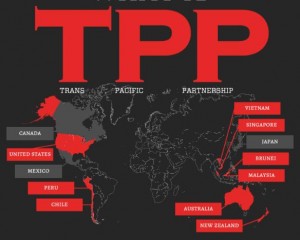Authors: Hazel Moir, Brigitte Tenni, Deborah Gleeson & Ruth Lopert
Abstract: In the Trans Pacific Partnership (TPP) Agreement negotiations, the USA successfully pursued intellectual property (IP) provisions that will affect the affordability of medicines, including anti-retrovirals (ARV) for HIV. Vietnam has the lowest GDP per capita of the 12 TPP countries and in 2013 provided ARVs for only 68% of eligible people living with HIV. Using the current Vietnamese IP regime as our base case, we analysed the potential impact of a regime making full use of legal IP flexibilities, and one based on the IP provisions of the final, agreed TPP text. Results indicate that at current funding levels 82% of Vietnam’s eligible people living with HIV would receive ARVs if legal flexibilities were fully utilised, while as few as 30% may have access to ARVs under the TPP Agreement – more than halving the proportion currently treated.
Citation: Hazel V. J. Moir, Brigitte Tenni, Deborah Gleeson & Ruth Lopert (2016): The Trans Pacific Partnership Agreement and access to HIV treatment in Vietnam, Global Public Health, DOI: 10.1080/17441692.2016.1256418.
Full Paper: http://www.tandfonline.com/eprint/25k6EWqepaucxSKWABYY/full





